Search Results
Showing results 41 to 60 of 84
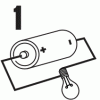
Circuit Sense
Source Institutions
In this activity about electricity, learners identify closed and open circuits. First, learners examine and label diagrams of open and closed circuits.
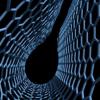
The Power of Graphene
Source Institutions
This lesson focuses on graphene and its electrical properties and applications.

Magnetic Suction
Source Institutions
In this activity about electricity and magnetism, learners discover how a doorbell works. A coil of wire with current flowing through it forms an electromagnet that acts similar to a bar magnet.
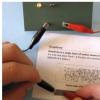
Exploring Materials: Graphene
Source Institutions
In this activity, learners investigate the properties of graphene and graphite.
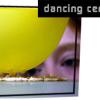
Dancing Cereal
Source Institutions
In this quick activity (on page 2 of the PDF under GPS: Body Electricity Activity), learners will observe how dry breakfast cereal appears to dance when it gets close to a balloon charged with static
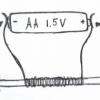
Make a Speaker
Source Institutions
In this activity, learners explore how an electromagnet works by making a simple one. Using this knowledge, learners design a diagram to make a working speaker using household materials.
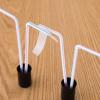
Electroscope
Source Institutions
In this activity about electricity, learners suspend pieces of tape from a straw to construct an electroscope, a device that detects an electrical charge.

Magnetic Pendulums
Source Institutions
In this activity and demonstration about electricity and magnetism, learners observe how the current generated when one copper coil swings through a magnetic field starts a second coil swinging.

Community Wind Project
Source Institutions
In this thought-provoking activity, learners plan a hypothetical project to build and operate wind turbines in their community.
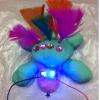
Dough Creatures
Source Institutions
In this technology activity, learners light up the room with electrifying play dough creations. Learners use conductive and insulating homemade play dough to build simple circuits.
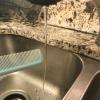
Static Water
Source Institutions
In this activity, learners will use static elecricity to bend a stream of water without touching it. Learners will explore physics and cause and effect through this activity.
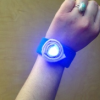
High Tech Fashion
Source Institutions
In this technology activity, learners build simple circuits, design soft circuits using conductive thread, and then sew switch-activated circuits.
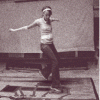
Dance Pad Mania
Source Institutions
Make your own "Dance Dance Revolution" dance pad! In this design challenge activity, learners work in teams to build a dance pad that lets you use your feet to sound a buzzer or flash a light.
Happy City
Source Institutions
Make a model city happier with LEDs, circuits, motors, and batteries! Groups can think, discuss, design, and build what would make a community happy. Kids can work as part of a team or on their own.

Got Gas?
Source Institutions
Create gas with a glass of water, some wire, conductors and a battery! You will be separating water (H2O) into oxygen and hydrogen.
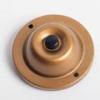
Two Button Buzzer Circuit
Source Institutions
In this activity, learners explore an everyday situation, where either of two or more buttons can ring a buzzer.
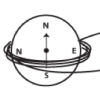
How Do We Convert Mechanical Energy into Electrical Energy?
Source Institutions
In this activity, learners use a compass, powerful magnet, and copper magnet wire to build a special generator known as a dynamo.
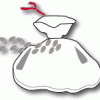
Static Electricity
Source Institutions
In this quick activity, learners explore static electricity using a plastic comb, wool cloth, puffed rice, and a plastic bag.
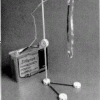
Circles of Magnetism IV
Source Institutions
In this activity related to magnetism and electricity, learners observe as two parallel, current-carrying wires exert forces on each other.
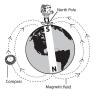
Dancing Compasses
Source Institutions
Learners use compasses to detect the magnetic field created by current moving through a wire. This is one of four activities learners can complete related to PhysicsQuest 2008.
